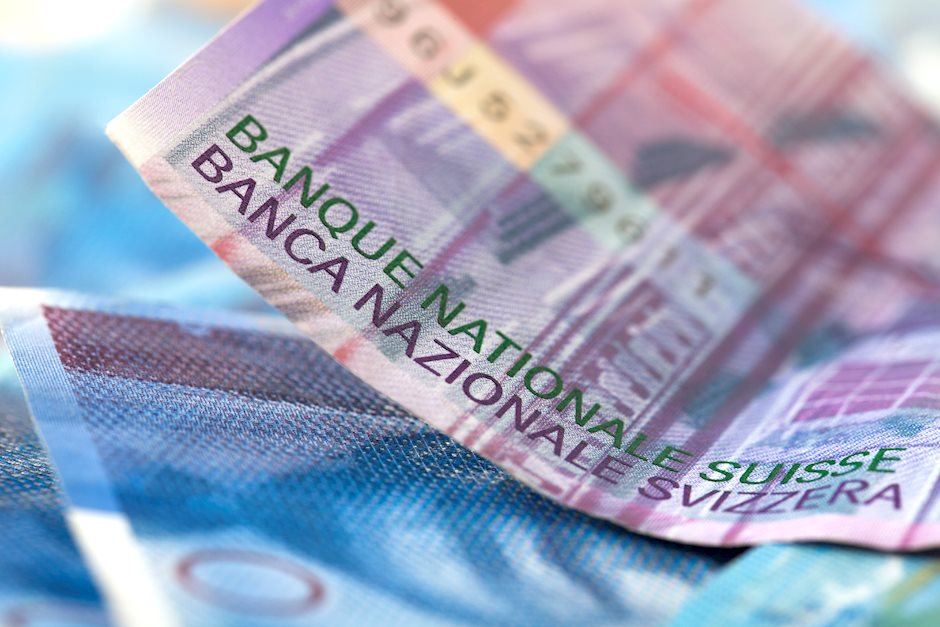USD/CHF holds positive ground above 0.8900 on Fed's hawkish approach
- USD/CHF trades in positive territory near 0.8935 in Monday’s early European session.
- The hawkish Fed rate cut underpins the US Dollar.
- The rising geopolitical risks could boost the safe-haven flows, capping the downside for the CHF.

The USD/CHF pair gains traction to around 0.8935, snapping the two-day losing streak during the early European session on Monday. The hawkish rate cut by the US Federal Reserve (Fed) provides some support to the Greenback. Traders await the US December Consumer Confidence and Chicago Fed National Activity Index reports, which are due later on Monday.
The Fed cut the interest rates by a quarter point last week and pencilled in only two rate cuts in 2025, down from its original forecast of four. The hawkish signals from the US central bank, which appear newly concerned about persistent inflation in the months ahead, could lift the Greenback against the Swiss Franc (CHF).
On the other hand, the Swiss National Bank (SNB) cut its key interest rate by 50 basis points (bps) at its December meeting, exceeding expectations of a smaller reduction amid weaker-than-expected inflation in Switzerland and rising uncertainty about the global economy. A more aggressive rate cut from the SNB than the Fed could undermine the CHF and act as a tailwind for USD/CHF.
SNB chairman Martin Schlegel left the door open for further interest rate cuts next year but said it was now less likely the Swiss central bank could take rates below 0%. "We will continue to monitor the situation closely and will adjust our monetary policy if necessary to ensure inflation remains within the range consistent with price stability over the medium term,” added Schlegel.
Meanwhile, the escalating geopolitical tensions in the Middle East could boost the safe-haven currency like the CHF. Israeli strikes across the Gaza Strip overnight and early Sunday killed at least 50 Palestinians, including at one family's home and at a school building, according to Palestinian medical officials. The Houthis released a statement, claiming responsibility for the attack, saying they had aimed a hypersonic ballistic missile at a military target.
Swiss Franc FAQs
The Swiss Franc (CHF) is Switzerland’s official currency. It is among the top ten most traded currencies globally, reaching volumes that well exceed the size of the Swiss economy. Its value is determined by the broad market sentiment, the country’s economic health or action taken by the Swiss National Bank (SNB), among other factors. Between 2011 and 2015, the Swiss Franc was pegged to the Euro (EUR). The peg was abruptly removed, resulting in a more than 20% increase in the Franc’s value, causing a turmoil in markets. Even though the peg isn’t in force anymore, CHF fortunes tend to be highly correlated with the Euro ones due to the high dependency of the Swiss economy on the neighboring Eurozone.
The Swiss Franc (CHF) is considered a safe-haven asset, or a currency that investors tend to buy in times of market stress. This is due to the perceived status of Switzerland in the world: a stable economy, a strong export sector, big central bank reserves or a longstanding political stance towards neutrality in global conflicts make the country’s currency a good choice for investors fleeing from risks. Turbulent times are likely to strengthen CHF value against other currencies that are seen as more risky to invest in.
The Swiss National Bank (SNB) meets four times a year – once every quarter, less than other major central banks – to decide on monetary policy. The bank aims for an annual inflation rate of less than 2%. When inflation is above target or forecasted to be above target in the foreseeable future, the bank will attempt to tame price growth by raising its policy rate. Higher interest rates are generally positive for the Swiss Franc (CHF) as they lead to higher yields, making the country a more attractive place for investors. On the contrary, lower interest rates tend to weaken CHF.
Macroeconomic data releases in Switzerland are key to assessing the state of the economy and can impact the Swiss Franc’s (CHF) valuation. The Swiss economy is broadly stable, but any sudden change in economic growth, inflation, current account or the central bank’s currency reserves have the potential to trigger moves in CHF. Generally, high economic growth, low unemployment and high confidence are good for CHF. Conversely, if economic data points to weakening momentum, CHF is likely to depreciate.
As a small and open economy, Switzerland is heavily dependent on the health of the neighboring Eurozone economies. The broader European Union is Switzerland’s main economic partner and a key political ally, so macroeconomic and monetary policy stability in the Eurozone is essential for Switzerland and, thus, for the Swiss Franc (CHF). With such dependency, some models suggest that the correlation between the fortunes of the Euro (EUR) and the CHF is more than 90%, or close to perfect.
Author

Lallalit Srijandorn
FXStreet
Lallalit Srijandorn is a Parisian at heart. She has lived in France since 2019 and now becomes a digital entrepreneur based in Paris and Bangkok.

















